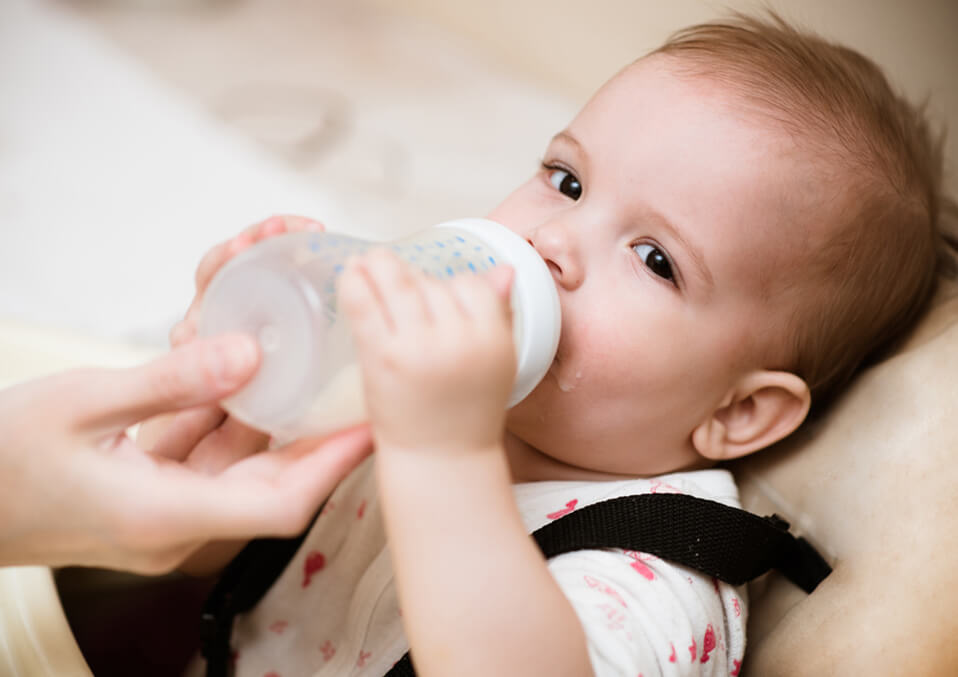
Motherhood is a very exciting time of a woman’s life mostly for first-time moms. You can also not deny the fact that a lot of responsibilities come with it – the most important thing is ensuring not only your health but as well as your little ones. As a proven fact, breastfeeding is the key to this. It is packed with sufficient nutrients necessary for your baby’s health. Moreover, nothing beats the feeling of nursing your baby first hand. However, some moms are not able to breastfeed their babies. Experts had emphasized that there’s no reason not to breastfeed. But a benefit of the doubt should be given to those moms who really can’t, and here we consolidated the reasons why some of them can’t or shouldn’t breastfeed. Find out why by tuning in to this post!
Low or zero breast milk supply

Some women want to breastfeed but they can’t due to lactation failure. This commonly results from underlying conditions, but through a series of treatments, some concerns may be fixed and a mother may continue to produce milk supply. But take note that some problems can’t have solutions and these include:
- Polycystic ovarian syndrome (PCOS)
- Inadequate glandular tissue or hypoplastic breast.
- Previous chest surgery, such as breast reduction or mastectomy.
- Hypothyroidism.
- Previous radiation procedure for breast cancer.
You can still put your baby to your breast as breastfeeding provides more than just nutrition. What we are talking about here is, breastfeed for security and comfort. Many infants and even older kids are used to this. Also, even if you have a very low milk supply, any quantity that you can provide for your baby is good for him even if it’s too little.
Usage of illegal drugs

It’s a known fact that the use of illicit drugs is not suited to breastfeeding, pregnancy, and parenting in the first place. Street drugs carry the danger to a mother and her child as well, as drugs sip into the breast milk and pass to the baby once consuming it. Sleepiness, irritation, poor feeding, neurological damage, growth problems and in worst cases, death can be the result once a baby received illegal drugs through breastfeeding. A mother puts not only herself but her baby as well at risk by using recreational drugs. Moms who use illicit drugs while pregnant and breastfeeding can end up in trouble with the country’s regulation and their custody of their child can be taken away from them. On the other hand, drug users who have redeemed themselves may be able to breastfeed. As long as they had fully recovered or at least in the process of recovery, then they can discuss their aspiration to breastfeed with their doctors.
Under medication

As lots of medications are safe to consume while breastfeeding, then some are not. Certain prescription drugs are harmful to the baby, other medications can be reasons for the reduction of milk supply as well. Antiretroviral medications, chemotherapy drugs, radioactive iodine, few sedatives, seizure medications, and those that can cause suppress breathing and drowsiness. While sinus and cold medications that contain pseudoephedrine and types of hormonal birth control lower the production of breast milk. As always recommended, talk to your doctor before using any prescription drugs and do not forget to tell him that you are pregnant. If you are required to take any medicine, ask him if it’s safe while you are nursing your baby or if there is an alternative medication.
Serious infections
A lot of infections are cured easily and do not obstruct breastfeeding and danger the baby but few infectious diseases can pass through and can be risky. These include:
- Human Immunodeficiency Virus (HIV). This condition may lead to a more serious risk which is Acquired Immunodeficiency Syndrome (AIDS). A child may obtain this as well if the mother is infected while nursing. An HIV positive mother should not breastfeed if she resides in a place of the globe where there is a safe alternative since AIDS does not have a cure. However, exclusive breastfeeding is suggested to countries where there is no safe replacement.
- Human T-Cell Lymphotropic Virus 1 (HTLV 1). This virus is a type that can lead to lymphoma and leukemia while HTLV 2 can cause lung and brain complications. These conditions may not show any symptoms at all but they do not have any cure and can suffer life long. The baby should not breastfeed since both HTLV 1 and HTLV 2 can be transmitted through breast milk. On a positive note, HTLV 1 cells can be knocked down through thawing and freezing of breast milk at a temperature of -4 degrees Fahrenheit, which is equivalent to -20 degree Celsius or below, this must be done for twelve hours.
- Active tuberculosis infection. Tuberculosis (TB) is an infection in the lungs caused by bacteria. It is transmitted to babies not by breastfeeding but through respiratory droplets. However, a child can acquire this condition when a mother sneezes, coughs and touches his child. Well, since tuberculosis is not transmitted through breast milk, a mother can use pumped breast milk for her child as an alternative until she can start breastfeeding after approximately two weeks after treatment.
- Presence of active herpes on the breast. As long as lesions are not specifically on the breast (just certain parts of the body is covered) then herpes is not transmitted to your child through breastfeeding. Though, if active lesions are present on the breasts, then breastfeeding can be dangerous as the herpes virus is deadly for the baby.
How to feed your baby when breastfeeding is not possible?
- Pumping added with formula. This is a handy option when you are having difficulty in supplying enough milk. A breast pump is an efficient tool that gives you the convenience of filling and storing your milk and helps you keep your flow when your baby is feeding with formula.
- Formula feeding. The transition from nursing a child to feeding him with formula brings emotional feelings to moms sometimes, but many babies adapt to this without any protest. Just put in mind that nuzzling, nestling, snuggling and all other bonding stuff are still essential whether your child feeds from your breast or a bottle.
Read also:
- Alternatives to Breastfeeding May Moms not Know
- Is Taking a Bath During Pregnancy Healthy or Not?
- 10 Ways to Prevent Bleeding in Your Nipples While Breastfeeding


